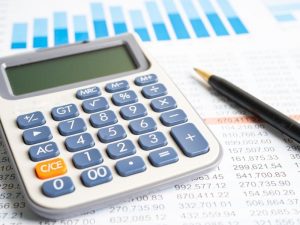Forensic accountants are a crucial part of any criminal investigation. Their responsibilities are wide-ranging and require a combination of accounting, analysis, and legal knowledge. In this article, we will delve deeper into the role of forensic accountants, what they do, and how they can help in criminal investigations.
- What is a Forensic Accountant?
A forensic accountant is a professional trained in the detection, investigation, and prevention of financial crimes. They are skilled in areas like fraud examination, digital forensics, and investigative accounting. Forensic accountants often work alongside law enforcement and legal professionals to piece together financial evidence and bring criminals to justice.
- The Role of Forensic Accountants
Forensic accountants play a crucial role in criminal investigations, particularly those related to financial crimes. Here are some of their key responsibilities:
a. Fraud Detection: Forensic accountants use their expertise to detect fraudulent activities in financial statements, identify discrepancies, and determine if any laws have been violated.
b. Investigation: Forensic accountants conduct in-depth investigations into financial transactions, spending patterns, and business operations to identify any potential criminal activities.
c. Digital Forensics: In today's digital age, forensic accountants utilize digital forensics tools to retrieve and analyze data from computer systems, smartphones, and other electronic devices. This helps them piece together digital evidence that can be used in court.
d. Expert Testimony: Forensic accountants often provide expert testimony in court, providing detailed accounts of financial transactions, criminal activities, and the results of their investigations.
e. Prevention: Forensic accountants also play a role in preventing financial crimes by advising clients on measures to protect their finances and providing training to employees on识别潜在的欺诈行为.
- How Can Forensic Accountants Help in Criminal Investigations?
Forensic accountants bring a unique set of skills to criminal investigations that no other profession can match. Here are some ways they can help:
a. Understanding Financial Records: Forensic accountants have the expertise to understand complex financial records and identify patterns, discrepancies, and potential fraud. This can be crucial in building a case against criminals.
b. Connecting the Dots: Forensic accountants can connect seemingly unrelated financial transactions and spending patterns to build a comprehensive picture of criminal activities. This helps law enforcement officials piece together the entire scheme.
c. Digital Evidence: With their digital forensics skills, forensic accountants can retrieve and analyze data from various sources to create a digital timeline of events or identify suspects through electronic footprints.
d. Testifying in Court: Forensic accountants provide expert testimony in court, sharing their findings and analysis with judges and juries. This can be crucial in securing convictions and justice for victims.
e. Preventing Future Crimes: Forensic accountants not only help investigate past financial crimes but also advise clients on measures to prevent future criminal activities. This helps create a culture of financial honesty and integrity within organizations.
In conclusion, forensic accountants play a crucial role in criminal investigations related to financial crimes. With their combination of accounting, analysis, and legal knowledge, they are able to piece together financial evidence, connect the dots, and prevent future crimes. Their expert testimony in court can secure convictions and bring justice to victims of financial crimes.





+ There are no comments
Add yours